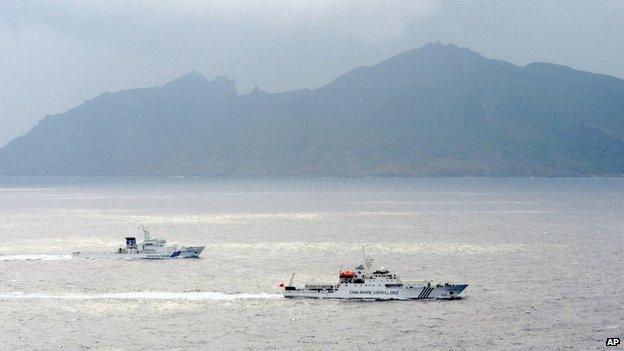Japan, China and South Korea 'restore' fraught ties
- Published
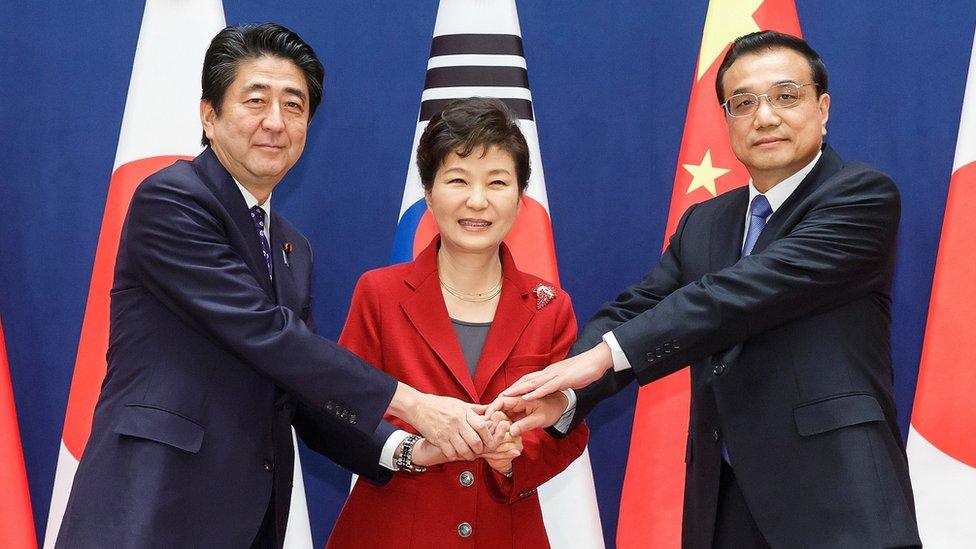
The trilateral meeting is the first for three-and-a-half years
The leaders of Japan, China and South Korea say they have "completely restored" trade and security ties, at their first meeting in three years.
They said in a statement they had agreed to resume regular trilateral meetings, not held since 2012.
They also agreed to improve their economic co-operation.
The talks in the South Korean capital, Seoul, were an attempt to ease ill-feeling fuelled by territorial disputes and historical disagreements.
China and South Korea say Japan has not done enough to atone for its troops' brutality in World War Two.
Focus on North Korea
The BBC's Stephen Evans in Seoul says the real significance of the talks is that they happened at all.
They were held regularly until three-and-a-half years ago, when they were called off as bad feeling towards Japan intensified.
"We shared the view that trilateral co-operation has been completely restored on the occasion of this summit," South Korean President Park Geun-hye, Chinese Premier Li Keqiang and Japanese Prime Minister Shinzo Abe said in a joint statement, quoted by AFP.
Ms Park said the three leaders had agreed to work together to conclude the Regional Comprehensive Economic Partnership (RCEP), a 16-nation free trade area favoured by Beijing.
She said they maintained their goal of "denuclearising" North Korea, AFP reported.
Our correspondent says that South Korea and Japan are torn between their allegiance to the US and their need to get on economically with Beijing.
Mr Li met Ms Park on Saturday and the two agreed to try to increase trade, particularly through more Korean exports of food to China and co-operation on research into robotics.
The two leaders were joined by Mr Abe on Sunday.
- Published14 August 2015
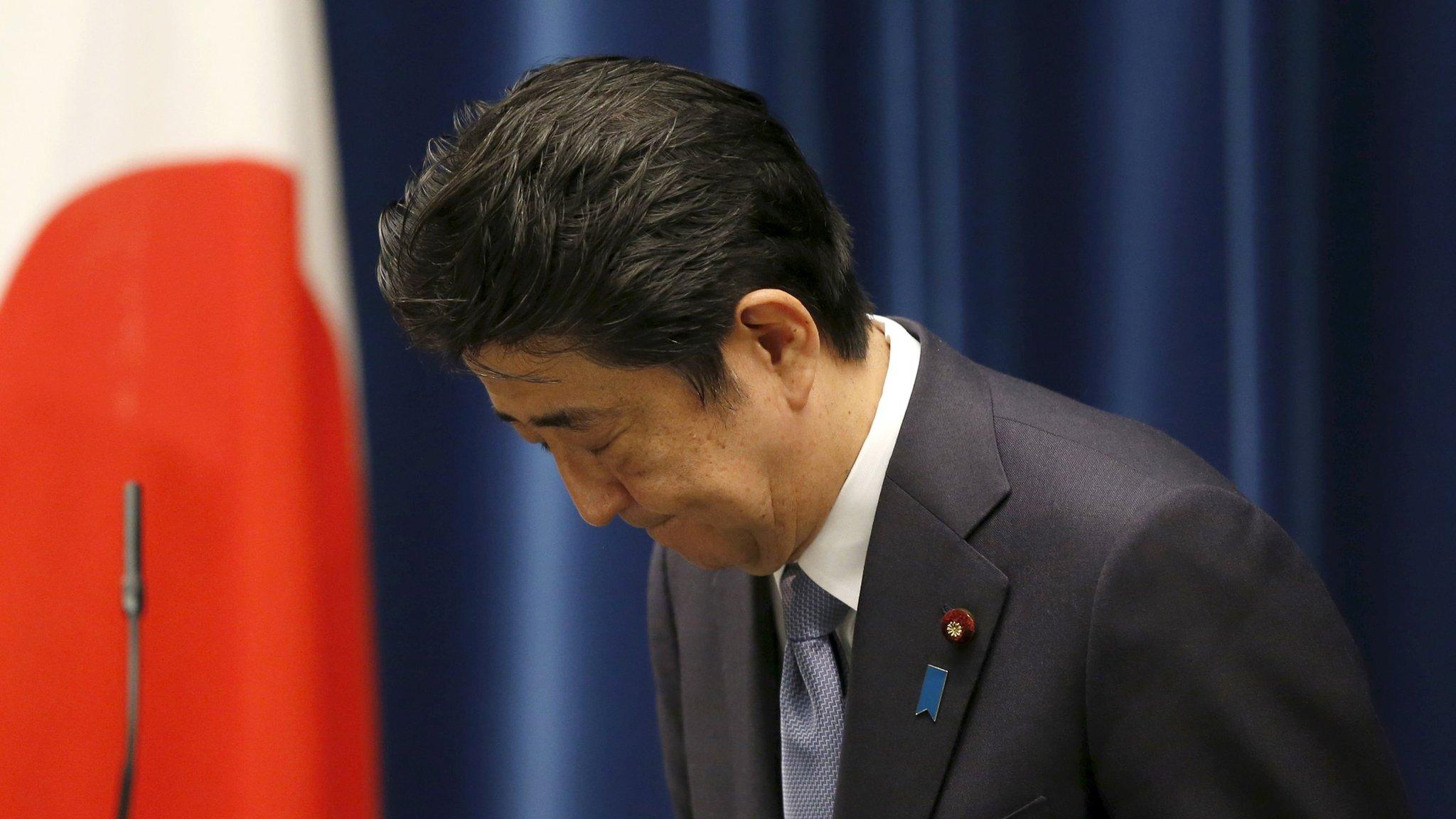
- Published19 September 2015
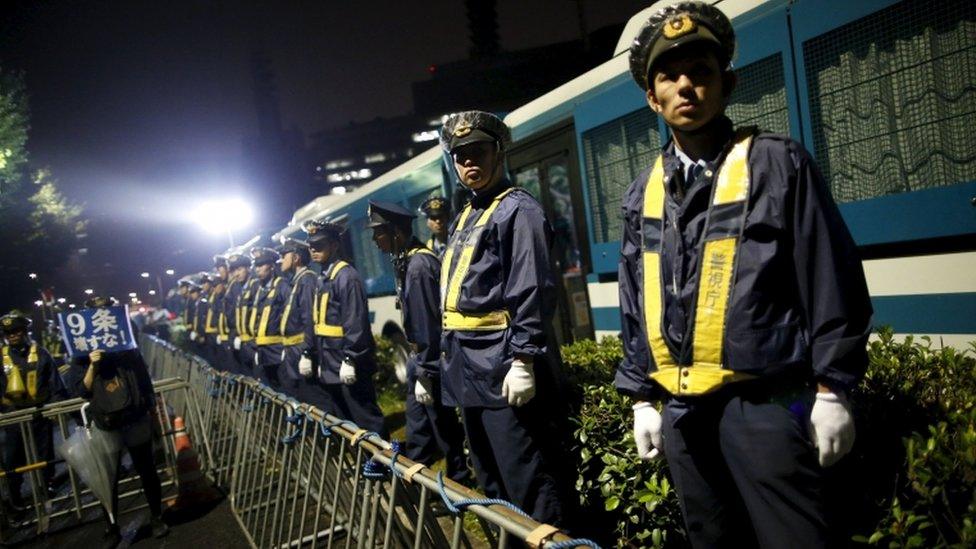
- Published17 September 2015
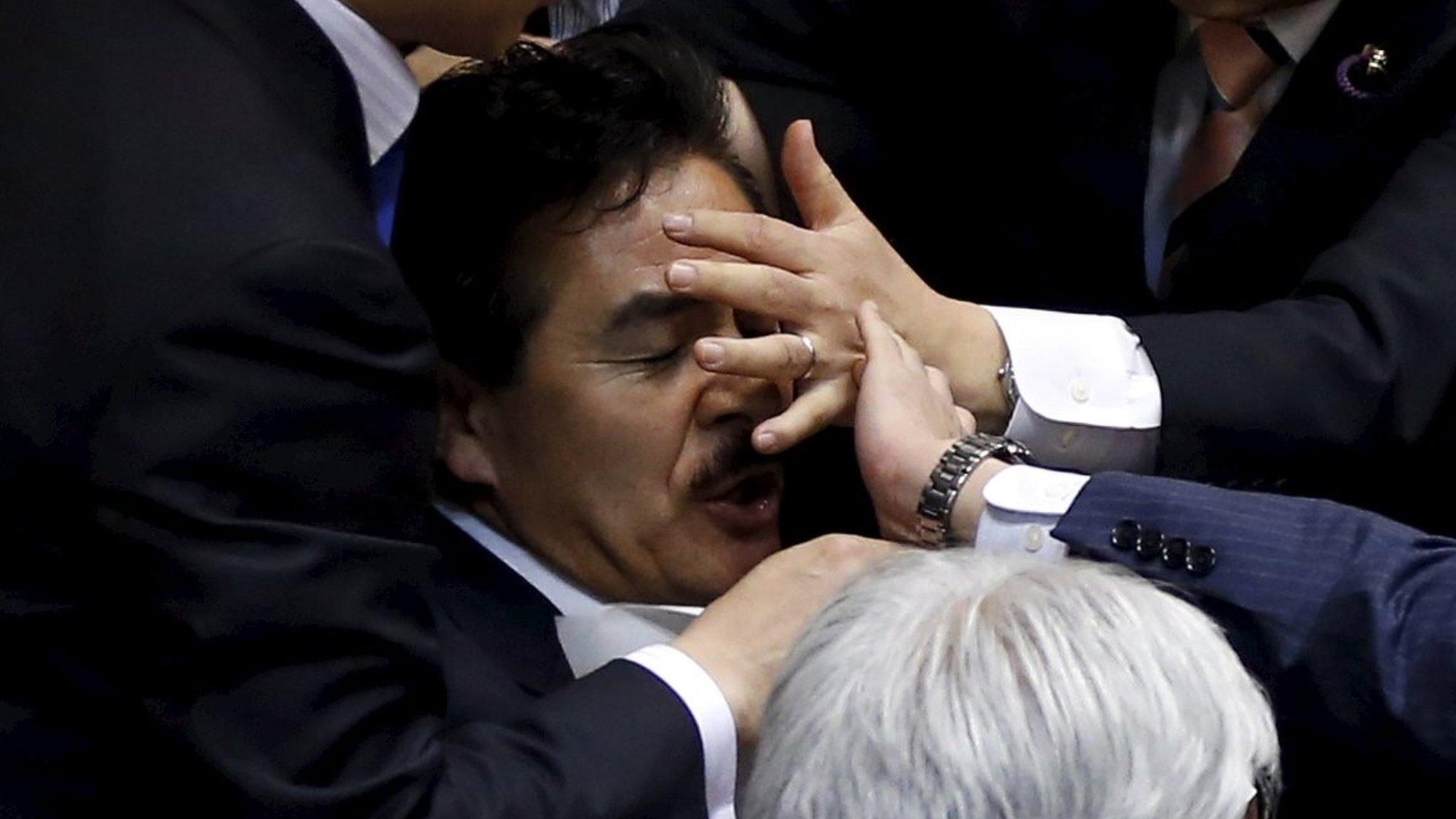
- Published21 March 2015
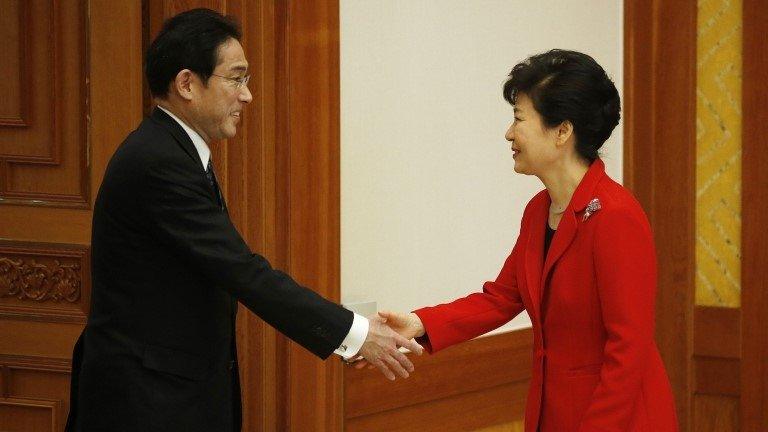
- Published10 November 2014
